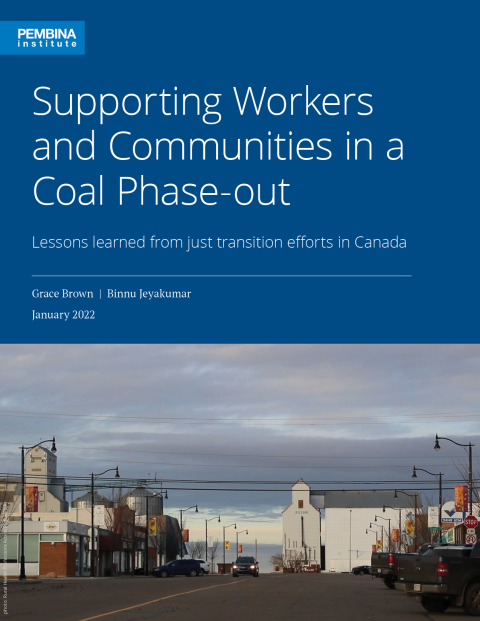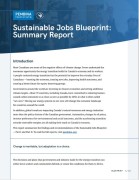Phasing out power generation from coal on a global scale is essential to avoid global temperature rise greater than 1.5°C — the critical limit at which the world will experience the worst impacts of climate change. A coal phase-out is also central to achieving Canada’s target of net-zero electricity sector emissions by 2035 and a net-zero economy by 2050. As Canada transitions to clean energy supplies to deliver on these commitments, coal workers and local communities will be highly vulnerable to potential job losses and economic hardship.
However, as jobs in the fossil fuel economy decrease, employment in clean energy is projected to rise enough to outpace those losses. While managing the impacts of the coal phase-out is challenging, the clean energy transition also creates new opportunities for communities and workers.
This report provides a history of Canada’s coal phase-out endeavours in the context of jobs and economic development and an overview of current and proposed worker- and community-focused policies at the provincial and federal levels. It summarizes key considerations for a successful just transition, which will entail access to sustainable jobs, community economic development, and strategic financial investments.
The report concludes with recommendations for effective energy transition policymaking that can support the workers and communities that will be impacted most directly by the changes ahead. These policy recommendations can be applied to coal phase-out as well as other sectors where the workforce faces significant economic shifts as Canada transitions away from fossil fuels to reach its decarbonization targets.
Key recommendations
- Set clear targets and pathways toward decarbonization and communicate information to stakeholders in a timely manner.
Clear communication about the pace, goals, and pathways of the energy transition measures provides the certainty needed for affected workers, communities, and industries to plan their futures.
- Involve all stakeholder groups early in transition negotiations.
Early participation is essential for crafting just transition policies that address the challenges faced by workers and communities most affected by the energy transition.
- Include transition financing mechanisms in decarbonization policy design.
A steady source of funding should be used to ensure the overall stability of just transition initiatives.
- Prioritize impacted communities in clean energy procurement programs.
Governments and utilities need to prioritize purchasing renewable energy from former coal communities, with a focus on community and Indigenous project ownership.







